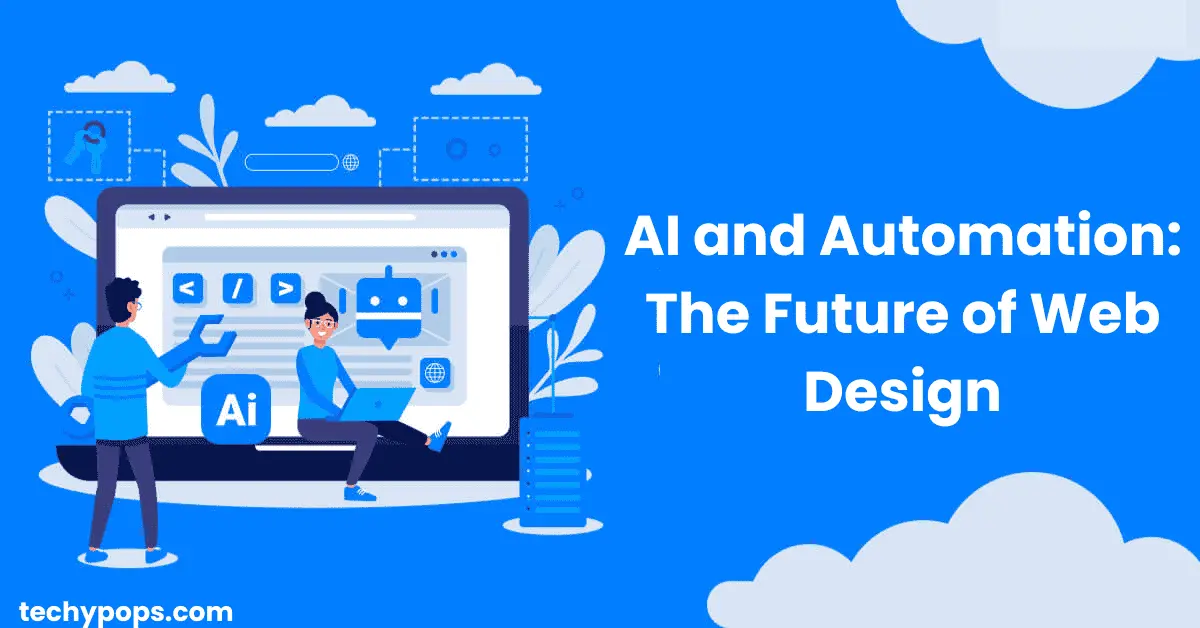Technology is changing rapidly, and artificial intelligence (AI) and automation are making a big impact on web design. These tools help designers work faster and more creatively by handling repetitive tasks. In this article, we’ll explore how AI and automation are shaping the future of web design.
The Role of AI in Web Design
AI tools are changing how web design works by automating tasks that used to take a lot of time. For example, tools like Adobe Sensei and Canva can suggest layouts, color schemes, and templates based on data. This allows designers to create beautiful websites more quickly while focusing on the creative parts of their work.
AI can learn from user preferences and design trends, which means it gets better over time at making suggestions that fit users’ needs.
Automating Repetitive Design Tasks
One of the biggest benefits of AI and automation is saving time on repetitive tasks. For example, tools like Webflow can automate coding and website updates, allowing designers to concentrate on more important work. Automation helps keep websites consistent, ensuring that all pages have a unified look and feel, which is important for brand identity.
AI-Driven User Experience (UX) Design

AI plays a key role in making user experiences better. By analyzing how users interact with a website, AI can suggest changes to improve usability. For instance, if users often ignore a button, AI can recommend a better location or design for it. This data-driven approach allows designers to create websites that are more engaging for users.
Machine Learning in Design Optimization
Machine learning helps optimize web design by learning from user data. It allows designers to test different elements and see what works best. For example, A/B testing can be enhanced with machine learning, automatically adjusting variables based on user feedback. This helps designers make better decisions faster.
The Rise of AI Design Assistants

AI design assistants, like Figma’s Auto Layout and Sketch’s Smart Layout, are becoming essential tools for designers. They provide suggestions, automate adjustments, and improve collaboration. These assistants make it easier for designers to experiment with different ideas and ensure a final product that looks great and works well.
As AI technology continues to improve, we may see even more advanced design assistants that can handle complex tasks, allowing designers to focus on strategy and creativity.
Challenges and Limitations of AI in Web Design
Despite the benefits, there are challenges with using AI in web design. AI lacks the emotional intelligence and creativity that human designers bring to their work. While AI can suggest designs based on data, it may miss the unique touch that comes from human experience.
Additionally, relying too much on technology can stifle creativity. Designers should aim to find a balance between using AI tools and trusting their instincts.
AI and Automation in Web Development Tools

Many web development platforms, such as Wix and WordPress, are incorporating AI and automation to make design easier for everyone. These platforms offer user-friendly features like drag-and-drop interfaces and AI-generated content suggestions. For example, Wix’s ADI (Artificial Design Intelligence) can create a personalized website based on user input, making it accessible to people without technical skills.
Future Trends: AI-Powered Design Evolution
Looking to the future, we can expect AI and automation to keep growing in web design. Fully automated websites may become common, with AI making complex design decisions based on user data. As technology advances, the design process will become more intuitive and efficient.
Integrating AI with new technologies like augmented reality (AR) and virtual reality (VR) could also lead to exciting developments in user interaction, creating more immersive experiences.
FAQs
Conclusion
AI and automation are changing the web design landscape in many positive ways. They make processes faster and improve user experiences, but designers need to use them wisely to maintain their creativity. By embracing AI tools, web designers can focus on innovative ideas, leading to more engaging websites.
As we move forward, it’s important for designers to stay updated on AI and automation. By working alongside these technologies, they can unlock new opportunities and ensure that the future of web design remains bright and dynamic.

Web Developer | Tech Enthusiast | Advocate for Special Education
